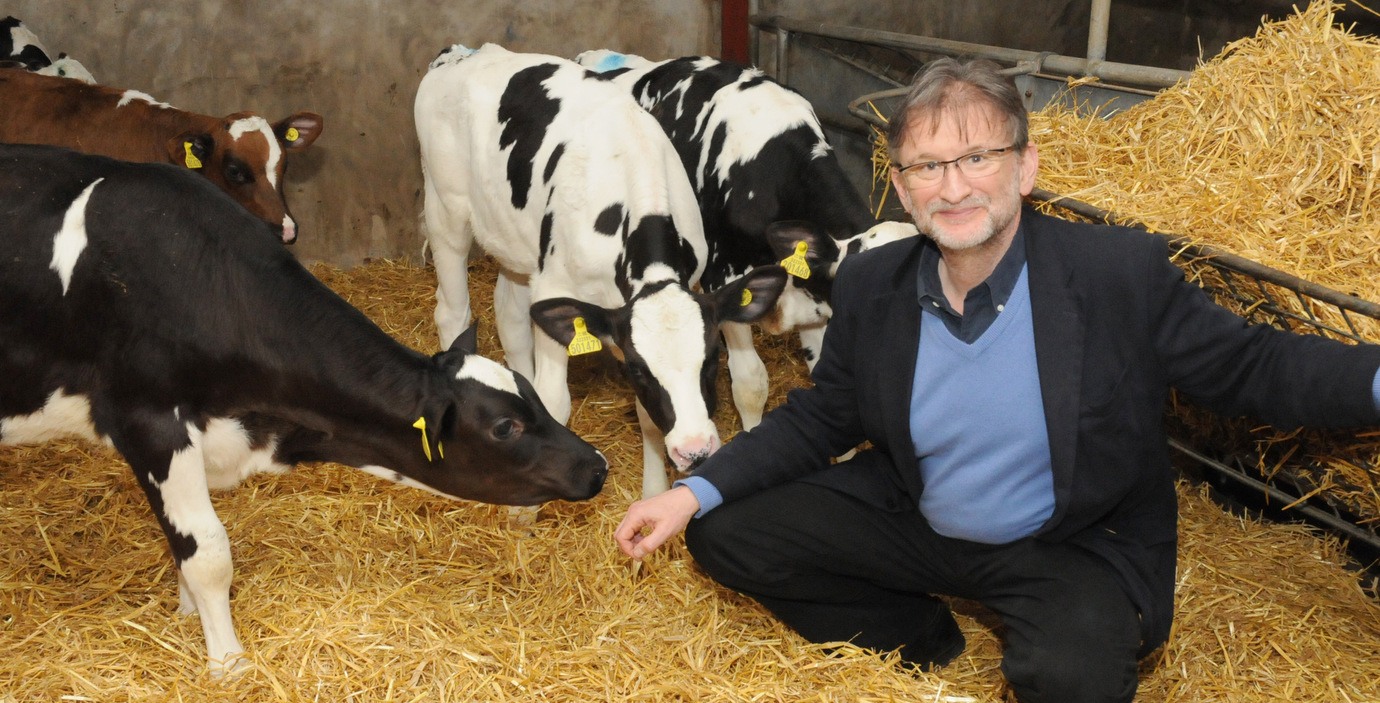
Global food security has become an increasingly important issue as climate change further reduces the amount of land available for farming. Coupled to this is the higher demand for animal protein as developing nations become wealthier, and a higher demand for cereals, making them less attractive as animal feed at both an economic and social level. This has resulted in a greater emphasis on ruminant farming (e.g. cattle and goats) because these animals are capable of converting feed unsuitable for human consumption into high-value protein.
Led by Professor Mark Eisler and Professor Michael Lee from the University of Bristol, a team of WUN experts is exploring potential strategies for the sustainable intensification of ruminant farming in real-world production systems, while minimising the environmental impacts associated with land use change. Their goal is to form a global network of model farm platforms across six continents (in regions which exemplify diverse livestock production systems) to host innovative research into grazing systems and disseminate findings among local farmers.
Despite recommendations from some quarters to reduce reliance on ruminant livestock, Professor Eisler believes they are likely to remain a vitally important sector of global agricultural production.
“Much can be done to improve the sustainability of ruminant farming in terms of environmental aspects such as climate change and ecosystem service provision, in terms of human health and wellbeing, and in terms of societal and economic considerations. My hope is that the WUN-enabled Global Farm Platform will make a significant contribution to this happening,” he says.
The project builds on an earlier collaboration which examined how future farming systems can provide healthy food from healthy animals, and includes the University of Alberta, the University of Bristol, the University of Leeds, Pennsylvania State University, the University of Sydney, the University of Western Australia and Zhejiang University. It also includes several WUN+ partners: Bahir-Dar University (Ethiopia), Instituto National de Investigación Agropecuaria (Uruguay), Kansas State University (USA), Kerala Veterinary and Animal Sciences University (India), Massey University (New Zealand), Rothamsted Research (UK), Small Scale Livestock and Livelihoods Program (Malawi), and the University of Wisconsin (USA). In 2013, the group received a WUN Research Development Fund (RDF) grant to help take their research a step further.
So far, WUN has played a significant role in both his research and career, says Professor Eisler.
“WUN funding was the key that unlocked the potential for creation of the Global Farm Platform by harnessing the willingness and enthusiasm of the international scientific community working on sustainable ruminant livestock to coordinate their efforts in this way. The WUN membership provided the initial nucleus group of collaborators that has since snowballed to include a wider range of WUN and WUN+ partners,” he says.
“WUN has enabled valuable collaborative links to be forged with like-minded collaborators in other member universities, and enabled a number of further collaborative funding bids with considerable success.”
Indeed, the group has already been highly successful, producing a position paper that was published in the March 2014 edition of Nature. They have also hosted several workshops throughout Australia, China, India, the UK and the US. Going forward, they will continue to use the Global Farm Platform to tackle challenges confronting sustainable ruminant production and promote their adoption.
“We will use the Platform to enhance opportunities for the development of large transnational research proposals, the collection and sharing of big data, scientific exchanges and the application of cutting-edge technologies. The Platform will also provide a unique vehicle for the training of early-career researchers,” says Professor Eisler.
“Our aim is to make the Global Farm Platform into a ‘go-to’ hub of knowledge for sustainable ruminant production systems in the international context.”
Read more about the WUN Global farm platforms for optimisation of grazing livestock production systems project.
